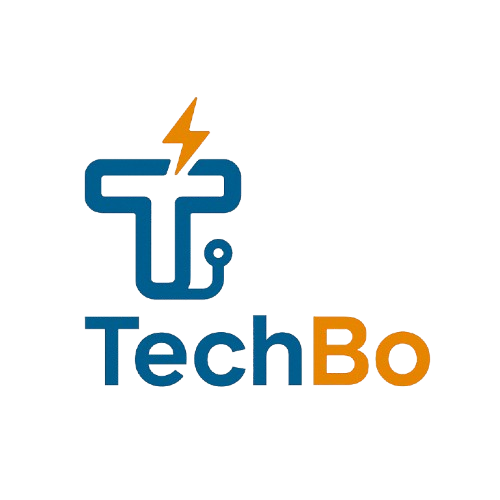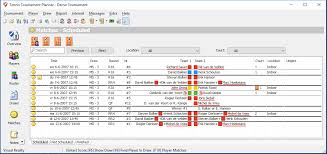In the fast-paced world of sports, esports, gaming, and even corporate competitions, the need for efficient, scalable, and user-friendly tournament management solutions has never been greater. Tournament software has emerged as a game-changer, streamlining the organization, execution, and analysis of competitive events. From local gaming tournaments to large-scale esports championships, tournament software has become an indispensable tool for organizers, participants, and spectators alike. This article explores the features, benefits, and applications of tournament software, as well as its impact on the world of competitive events.

What is Tournament Software?
Tournament software is a digital platform designed to facilitate the planning, management, and execution of competitive events. It provides organizers with the tools to create brackets, schedule matches, track results, and communicate with participants. For players, it offers a seamless experience, from registration to real-time updates on their progress in the tournament. Spectators, too, benefit from enhanced viewing experiences, with live score updates, match schedules, and interactive features.
The software can be tailored to various types of tournaments, including single-elimination, double-elimination, round-robin, and Swiss-style formats. It is used across a wide range of industries, including sports, esports, gaming, education, and corporate team-building events.
Key Features of Tournament Software
Modern tournament software is packed with features that cater to the diverse needs of organizers and participants. Here are some of the most important features:
- Bracket Management
Tournament software automates the creation and management of brackets, eliminating the need for manual input. Organizers can choose from various formats, such as single-elimination, double-elimination, or round-robin, and the software will generate the bracket accordingly. This ensures fairness and accuracy in match scheduling. - Participant Registration
The software simplifies the registration process by allowing participants to sign up online. Organizers can collect essential information, such as player names, contact details, and team compositions, through customizable registration forms. - Real-Time Updates
One of the most valuable features of tournament software is its ability to provide real-time updates. Participants and spectators can track match results, view upcoming fixtures, and monitor their progress in the tournament. - Scheduling Tools
Tournament software includes advanced scheduling tools that allow organizers to set match times, allocate venues, and manage conflicts. Automated notifications ensure that participants are informed of their match schedules. - Score Tracking and Reporting
The software enables organizers to input and track scores effortlessly. It also generates detailed reports, including leaderboards, player statistics, and tournament summaries. - Communication Tools
Built-in communication features, such as chat rooms, email notifications, and push alerts, keep participants and organizers connected throughout the event. - Integration with Streaming Platforms
For esports and gaming tournaments, integration with streaming platforms like Twitch and YouTube is essential. Tournament software often includes tools to broadcast matches live, enhancing the spectator experience. - Customization Options
Organizers can customize the software to reflect the branding and theme of their event. This includes adding logos, changing color schemes, and creating personalized landing pages. - Analytics and Insights
Advanced tournament software provides analytics and insights into player performance, audience engagement, and event success. This data is invaluable for improving future tournaments. - Mobile Compatibility
Many tournament software solutions offer mobile apps or responsive designs, allowing users to access the platform from their smartphones or tablets.
Benefits of Tournament Software
The adoption of tournament software has transformed the way competitive events are organized and experienced. Here are some of the key benefits:
- Efficiency and Time Savings
Manual tournament management is time-consuming and prone to errors. Tournament software automates repetitive tasks, such as bracket creation and score tracking, allowing organizers to focus on other aspects of the event. - Enhanced Participant Experience
Participants benefit from a streamlined registration process, real-time updates, and easy access to match schedules and results. This improves their overall experience and encourages repeat participation. - Improved Accuracy
Automated systems reduce the risk of human error in bracket generation, score tracking, and scheduling. This ensures fair and accurate tournament outcomes. - Scalability
Tournament software can handle events of all sizes, from small local competitions to large-scale international championships. It can accommodate hundreds or even thousands of participants without compromising performance. - Cost-Effectiveness
By reducing the need for manual labor and physical resources, tournament software lowers the overall cost of organizing events. It also minimizes the risk of costly errors. - Increased Engagement
Features like live streaming, real-time updates, and interactive leaderboards enhance spectator engagement, making tournaments more exciting and enjoyable to watch. - Data-Driven Decision Making
The analytics and insights provided by tournament software enable organizers to make informed decisions about event planning, marketing, and participant engagement. - Accessibility
Cloud-based tournament software can be accessed from anywhere, making it easy for organizers, participants, and spectators to stay connected.
Applications of Tournament Software
Tournament software is versatile and can be used in a wide range of settings. Here are some of the most common applications:
- Esports and Gaming
The esports industry has seen explosive growth in recent years, and tournament software has played a crucial role in its success. It enables organizers to manage large-scale gaming tournaments, broadcast matches live, and engage with a global audience. - Sports Tournaments
From amateur leagues to professional competitions, tournament software is used to organize and manage sports events. It simplifies tasks like scheduling, score tracking, and team management. - Corporate Events
Companies use tournament software to organize team-building activities, such as trivia contests, gaming tournaments, and sports competitions. These events foster camaraderie and boost employee morale. - Educational Institutions
Schools and universities use tournament software to manage intramural sports, debate competitions, and gaming clubs. It provides students with a structured and engaging way to participate in extracurricular activities. - Community Events
Local communities use tournament software to organize events like chess tournaments, bowling leagues, and charity gaming marathons. It brings people together and promotes a sense of community. - Online Gaming Platforms
Many online gaming platforms integrate tournament software to host regular competitions for their users. This enhances player engagement and retention.
The Future of Tournament Software
As technology continues to evolve, tournament software is expected to become even more advanced and accessible. Here are some trends to watch:
- Artificial Intelligence (AI)
AI-powered tournament software could analyze player performance, predict match outcomes, and optimize scheduling based on participant availability. - Virtual Reality (VR) Integration
VR technology could revolutionize the spectator experience by allowing users to watch tournaments in immersive virtual environments. - Blockchain Technology
Blockchain could be used to ensure transparency and fairness in tournament outcomes, particularly in esports and online gaming. - Enhanced Mobile Experiences
As mobile devices become more powerful, tournament software will likely offer more robust mobile features, such as augmented reality (AR) overlays and real-time notifications. - Global Accessibility
Cloud-based solutions and multilingual support will make tournament software accessible to a global audience, breaking down geographical barriers.
Conclusion
Tournament software has revolutionized the way competitive events are organized, managed, and experienced. Its ability to automate tasks, enhance participant engagement, and provide valuable insights has made it an essential tool for organizers across industries. As technology continues to advance, tournament software will undoubtedly play an even greater role in shaping the future of competitive events. Whether you’re organizing a local gaming tournament or a global esports championship, tournament software is the key to success in today’s fast-paced, digitally-driven world.

